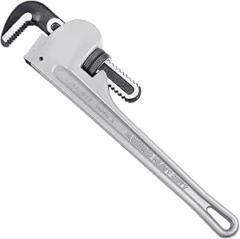Feb '25 (edited) • General discussion
⚙️ 3rd Class Chief Engineer: ABSA (Alberta) vs. BC Safety Authority – What’s the Difference?
If you’re a 3rd Class Chief Engineer, your responsibilities will vary depending on where you work. For example in my experience, while Alberta’s ABSA (Alberta Boilers Safety Association) and British Columbia’s Technical Safety BC (formerly BC Safety Authority) both regulate power engineers, their roles, responsibilities, and regulatory expectations have key differences—especially in sour gas processing environments. Let's take a closer look...
🔥 ABSA (Alberta) – 3rd Class Chief Engineer in a Sour Gas Plant
In Alberta, ABSA regulates power engineers under the Power Engineers Regulation (PER) of the Safety Codes Act. If you’re a 3rd Class Chief Engineer in a sour gas processing plant, you’re responsible for:
🔹 Operational Oversight & Process Safety:
Managing high-pressure boilers, pressure vessels, and H₂S handling systems.
Ensuring sour gas sweetening units, sulfur recovery units, and acid gas injection systems meet regulatory and process safety requirements.
🔹 Regulatory Compliance & Inspections:
Conducting daily logbook entries as per ABSA and AER (Alberta Energy Regulator) directives.
Maintaining compliance with ABSA’s Chief Power Engineer responsibilities, including routine and emergency shutdown procedures.
🔹 Team Leadership & Emergency Response:
Overseeing operators in SCBA (Self-Contained Breathing Apparatus) use, emergency blowdowns, and confined space entry.
Ensuring H₂S monitoring, PPE protocols, and ERP (Emergency Response Plans) are up to standard.
🔹 ABSA Chief Engineer Scope:
A 3rd Class Engineer may act as a Chief Engineer in lower-class plants but needs a 1st or 2nd Class certification to be Chief in large-scale facilities (above 10,000 kW boiler plants).
ABSA enforces a Chief Engineer Certificate of Competency, separate from a standard 3rd Class ticket.
⚡ BC Safety Authority – 3rd Class Chief Engineer (Technical Safety BC)
In British Columbia, Technical Safety BC enforces the Power Engineers, Boiler, Pressure Vessel, and Refrigeration Safety Regulation under the Safety Standards Act. Compared to ABSA, BC has different allowances for Chief Engineer roles and a different classification for power plants.
🔹 Plant Classification Differences:
BC’s Chief Engineer role is tied to plant classification, not just the engineer’s class level.
3rd Class Engineers can serve as Chief Engineer in 3rd Class power plants and may oversee certain 2nd Class plants depending on their experience and employer authorization.
In Alberta, ABSA strictly limits Chief Engineer roles based on boiler horsepower and kW ratings.
🔹 Key Responsibilities in BC:
Overseeing boiler operations, pressure piping systems, and refrigeration as per BC Safety Authority guidelines.
Ensuring gas processing safety, compressor operations, and plant maintenance.
Regulatory compliance with Technical Safety BC’s certification structure, which differs from ABSA’s tiered Chief Engineer requirements.
🔹 Safety & Emergency Differences:
BC’s gas processing plants still handle sour gas but are regulated differently, with WorkSafeBC playing a larger role in emergency preparedness and occupational health.
ABSA aligns more closely with Alberta’s AER (Alberta Energy Regulator) and OHS codes.
🛠️ Key Differences in a Nutshell:
🔹 Final Thoughts:
If you’re working as a 3rd Class Engineer in a sour gas processing plant, your role depends on which province you’re in. Alberta and BC have different regulatory structures, Chief Engineer requirements, and safety protocols, even though the core technical responsibilities remain similar.
💬 For those who’ve worked under both ABSA and BC Safety Authority regulations—what differences have you noticed in practice? Let’s compare experiences in the comments!
#PowerEngineering #ChiefEngineer #SourGas #ABSA #TechnicalSafetyBC #GasProcessing #EngineeringLeadership #ProcessSafety
8
9 comments

skool.com/power-engineering
Our mission is to empower every Power Engineer by helping them pass their SOPEEC exams to achieve the certification they desire.
Powered by



